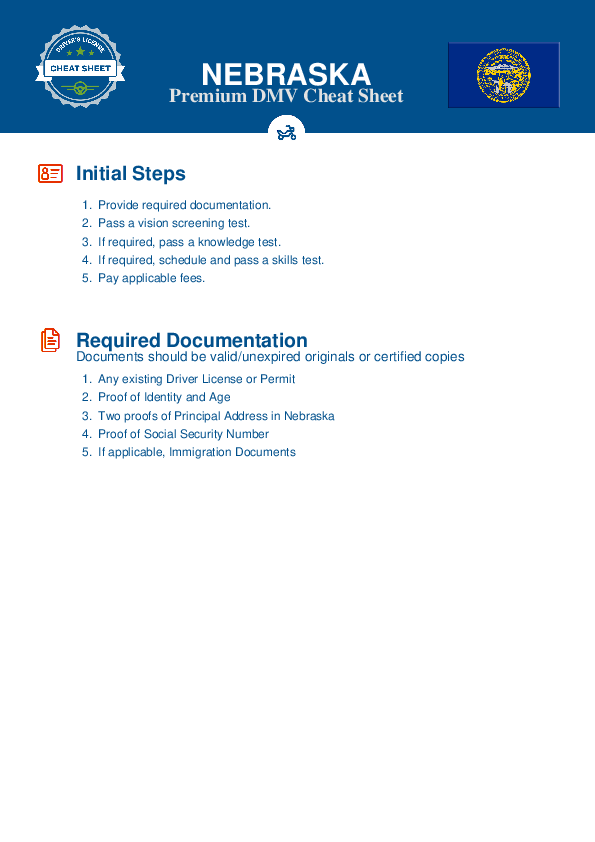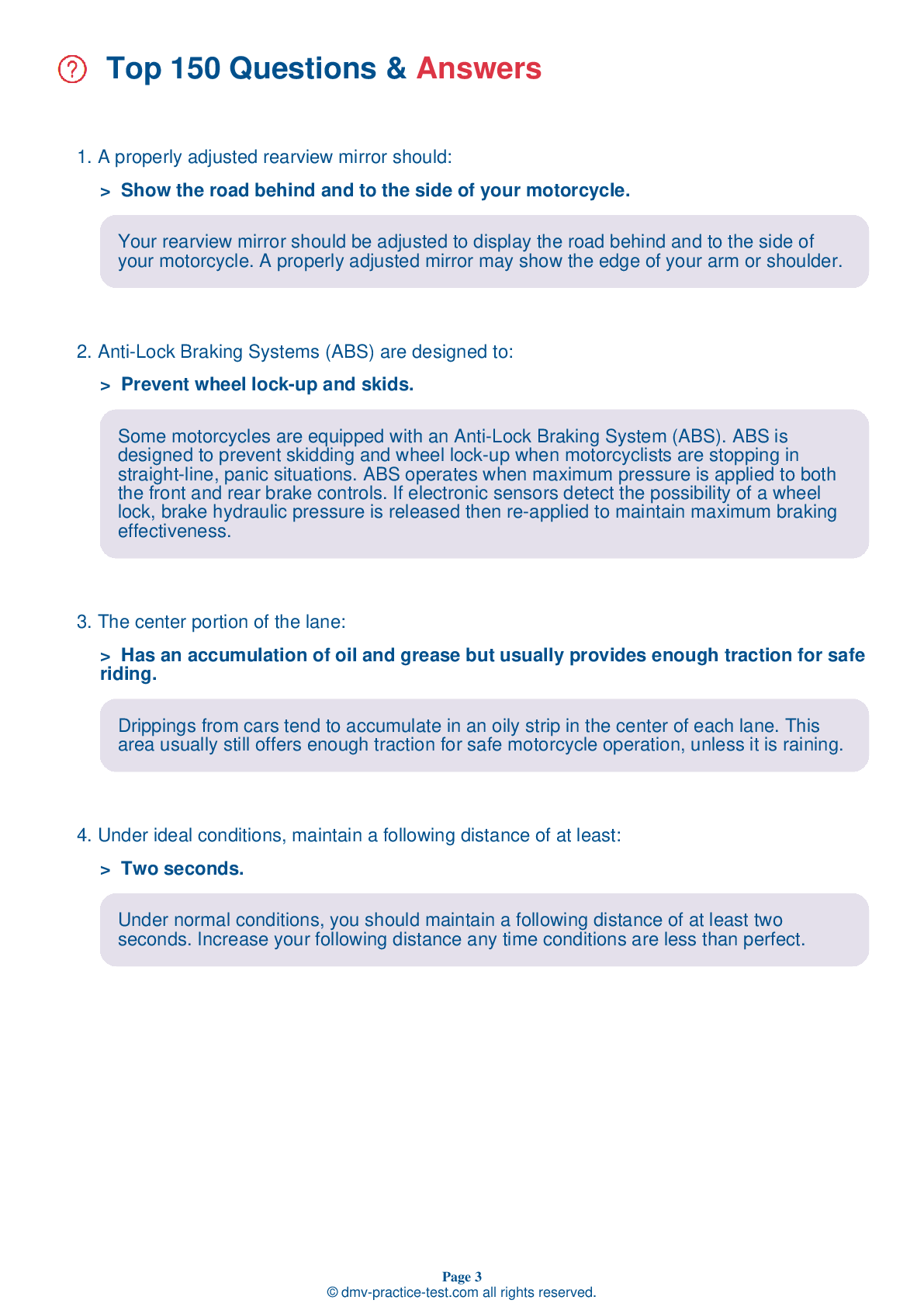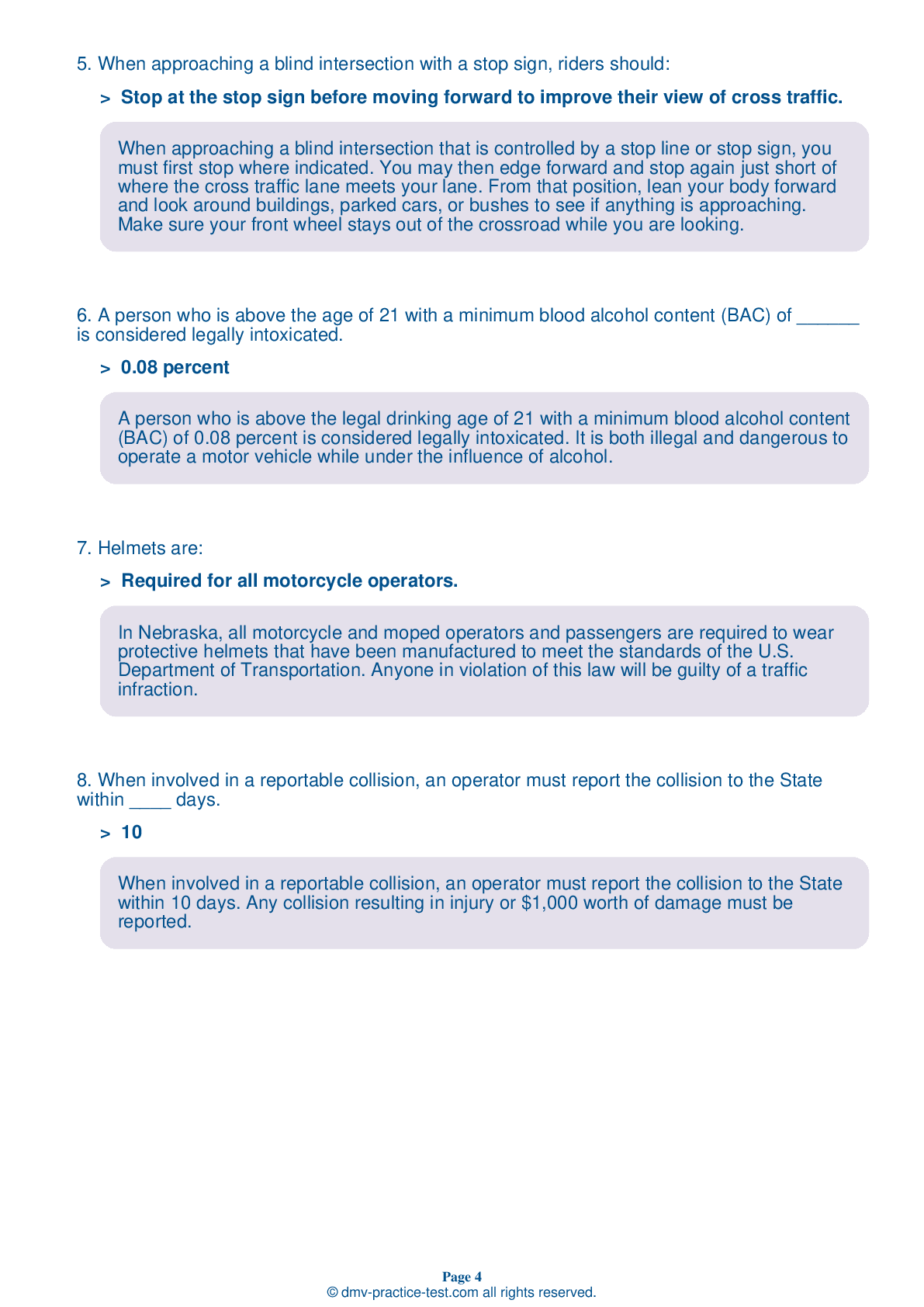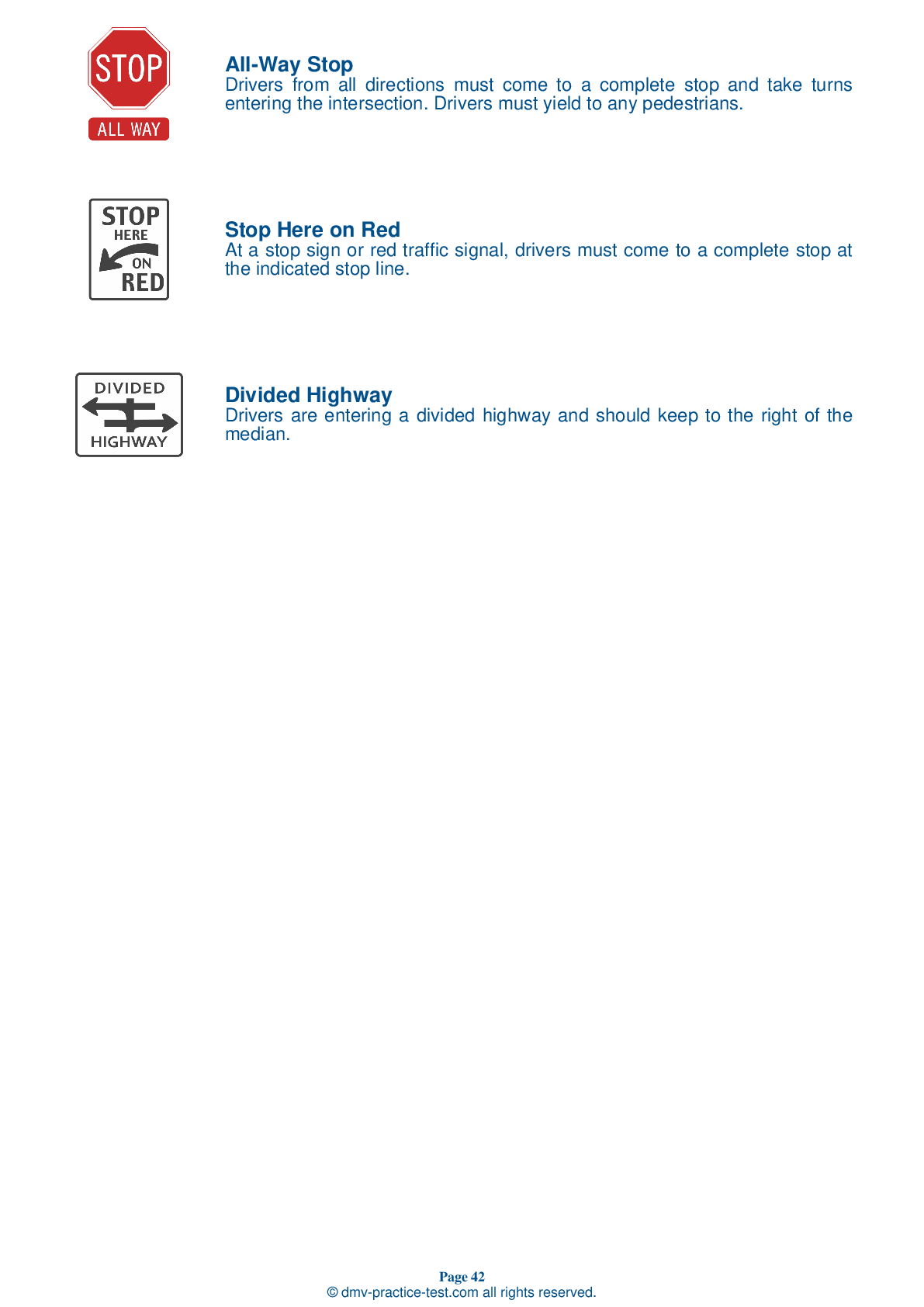Motorcycle Test | License NE 2026 | FREE Online Practice! #11 Page 4 of 4
Take this FREE motorcycle test (license in NE 2026) to check your knowledge of the road rules. To improve your results, download a motorcycle handbook online, study theory, and practice for free on our website. Still worried about how to get a motorcycle license in Nebraska in 2026? Check our website for more sample tests, train as much as possible, and boost your grades!
19 . In addition to hazardous road conditions, riders should search for:
Riders should continually scan ahead of, to the sides of, and behind their motorcycles. They should look for hazardous road conditions as well as traffic that could become hazardous.
20 . Before mounting your motorcycle, perform all of the following checks, except:
Before riding, you should check the pressure and condition of your tires; check the oil and fluid levels; and make sure that the low beam headlight, high beam headlight, taillight, signal lights, and brake light all work properly.
21 . Passengers should:
Before mounting, you should ask your passenger to look over your shoulder in the direction of any turn or curve that you may take. Doing so will help you and your bike to lean in the appropriate direction.
22 . When a lead rider's left arm is bent at the elbow with their index finger pointing straight up, it means:
Hand signals are an important part of communication when riding in groups. When the lead rider's left arm is bent at the elbow with their index finger pointing straight up, it means the group should move into a single-file formation.
23 . A motorcyclist should be sure not to:
Adjust the handlebars so your hands are even with or below your elbows. This positioning allows you to use the proper muscles for precision steering. Keep your feet on the footrests and your knees against the gas tank to help you maintain your balance when turning.
24 . This sign means:
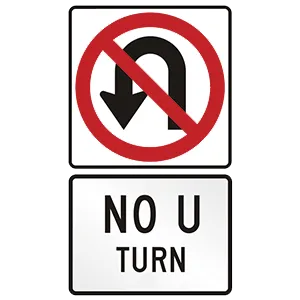
This sign indicates that you may not make a U-turn. You cannot turn around to go in the opposite direction at an intersection where this sign is posted.
25 . When both braking and swerving must be done to avoid an unexpected hazard, a rider should:
Because you need adequate traction to swerve safely, you should not brake and swerve at the same time. Instead, if you approach a hazard that requires you to brake and swerve, you should perform one action and then the other.
See the exact questions that will be on the 2026 Nebraska DMV exam.
99.2% of people who use the cheat sheet pass the FIRST TIME
Jeneen was tired of paying $5/gallon. She got herself a scooter that required the motorcycle license. She studyed the motorcycle test cheat sheet and passed her test the next day!
Christopher tells us how he knew nothing prior to obtaining the motorcycle study guide, and he only got one question wrong because he clicked on the wrong answer by mistake.
